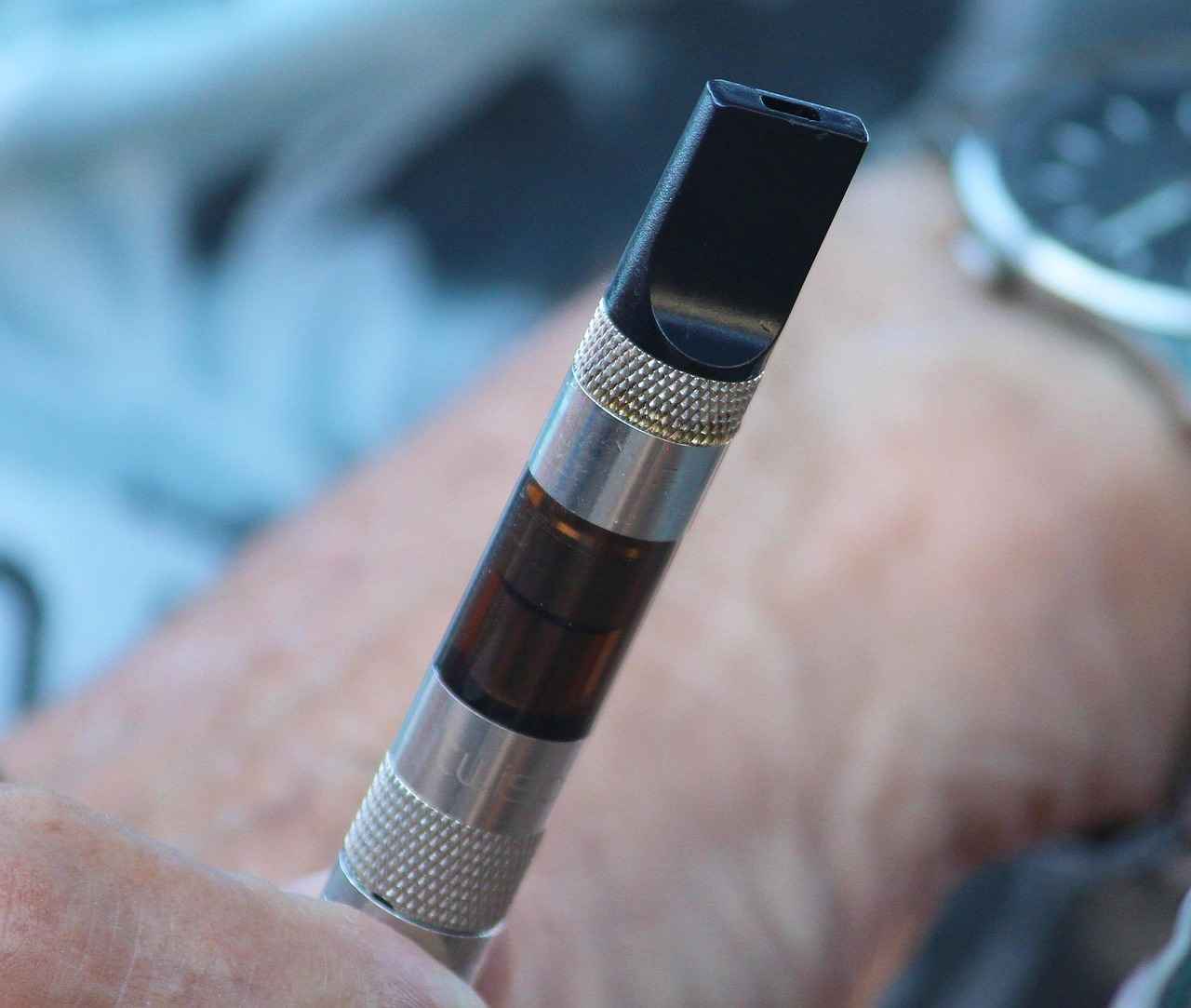In this article, we’ll explore the ongoing debate surrounding Newport cigarettes, examining their impact on public health, marketing strategies, and the cultural perceptions that keep them in the spotlight. As we delve into the complexities of this topic, we will uncover the multifaceted reasons behind the continued relevance of Newport cigarettes in today’s society.
Newport cigarettes are particularly recognized for their menthol flavor, which distinguishes them from many non-menthol brands. This unique flavor profile not only appeals to smokers looking for a smoother experience but also contributes to their addictive nature. The menthol component provides a cooling sensation that masks the harshness of tobacco, making it easier for new smokers to start and harder for them to quit. As a result, Newport has carved out a significant niche in the tobacco market, especially among younger smokers seeking a more palatable option.
The health implications of menthol cigarettes, including Newport, are a topic of intense scrutiny. Research indicates that menthol can enhance nicotine absorption, leading to increased addiction potential. Studies have shown that menthol smokers may experience higher levels of nicotine dependence compared to their non-menthol counterparts. Furthermore, menthol cigarettes have been linked to a range of health issues, including respiratory problems and cardiovascular diseases. This raises significant public health concerns, particularly in communities where smoking rates are already high.
Newport’s marketing strategies have evolved significantly over the years. Historically, the brand has targeted specific demographics, particularly younger consumers and African American communities. This focus has often been criticized for promoting smoking in populations already vulnerable to its health impacts. The use of vibrant advertising, sponsorship of music and cultural events, and endorsements from influential figures have all contributed to Newport’s strong brand identity. Understanding these tactics is crucial for grasping why Newport continues to thrive in a climate of increasing health awareness.
The controversy surrounding Newport cigarettes largely stems from their targeted marketing towards African American communities. Critics argue that this strategy raises ethical questions about corporate responsibility and public health. The disproportionate impact of smoking-related illnesses in these communities highlights the need for a more equitable approach to tobacco regulation. Advocacy groups have called for stricter regulations on menthol cigarettes, arguing that targeted marketing practices exacerbate health disparities.
Changes in legislation regarding menthol cigarettes have ignited debates about regulation and public health. In recent years, several states have proposed bans on menthol cigarettes, including Newport. These legislative efforts aim to reduce smoking prevalence and protect vulnerable populations. Understanding the legal landscape surrounding menthol cigarettes is essential for contextualizing the ongoing controversy and the potential future of these products.
As awareness of the health risks associated with smoking grows, many consumers are exploring alternatives to Newport cigarettes. Options such as vaping, nicotine replacement therapies, and herbal cigarettes are gaining traction. These alternatives often promise reduced health risks and a less addictive experience. For many smokers, transitioning to these alternatives represents a crucial step towards quitting smoking altogether.
Consumer preferences play a pivotal role in shaping the market for Newport cigarettes. Recent trends indicate a shift towards more health-conscious choices, which could significantly impact sales and marketing strategies. As younger generations become more aware of the dangers of smoking, tobacco companies must adapt to remain relevant. This shift is not only influencing product offerings but also marketing approaches, as brands strive to appeal to a more health-oriented consumer base.
Cultural identity significantly influences cigarette consumption patterns. Newport’s branding resonates with specific cultural narratives, making it a staple in certain communities. This connection to cultural identity can create a sense of loyalty among consumers, making it challenging for public health campaigns to alter smoking behaviors. Understanding the cultural dimensions of tobacco use is essential for developing effective intervention strategies.
Public health campaigns are increasingly targeting menthol cigarettes, including Newport, to reduce smoking rates. These initiatives aim to educate the public on the associated health risks and promote cessation resources. By highlighting the dangers of menthol cigarettes, public health officials hope to shift perceptions and encourage smokers to seek help in quitting.
The economic implications of Newport cigarettes extend beyond sales figures. They include job creation in the tobacco industry, tax revenues for governments, and the financial burden of healthcare costs associated with smoking-related illnesses. Understanding these economic factors is crucial for policymakers as they navigate the complex landscape of tobacco regulation.
When comparing Newport cigarettes to other brands, several factors come into play, including flavor profiles, price points, and market share. Newport’s unique menthol flavor and targeted marketing strategies have allowed it to maintain a competitive edge in the tobacco industry. As consumer preferences continue to evolve, it will be interesting to see how Newport adapts to stay relevant.
Social perceptions of smoking have evolved significantly, with increasing stigma surrounding tobacco use. As public health campaigns raise awareness of the dangers of smoking, brands like Newport face ongoing challenges in maintaining their market presence. Understanding these changing perceptions is essential for grasping the future landscape of tobacco consumption.
The tobacco industry, including brands like Newport, often faces criticism regarding health implications and marketing practices. Their responses can shape public opinion and regulatory actions. By addressing concerns and promoting harm reduction strategies, the industry attempts to navigate the complex relationship between public health and consumer choice.
Looking ahead, trends in consumer behavior, legislation, and public health initiatives will significantly influence the future of Newport cigarettes and the broader tobacco market. As society becomes more health-conscious, the pressure on tobacco companies to adapt and innovate will only increase.
For smokers looking to quit, understanding effective strategies for transitioning away from Newport cigarettes can be beneficial. Resources such as counseling, support groups, and cessation programs can provide the necessary assistance. Making a plan and seeking support can greatly enhance the chances of successfully quitting.
Advocacy groups play a critical role in pushing for stricter tobacco regulations, including menthol bans. Their efforts can significantly influence public policy and consumer behavior, making them vital players in the fight against tobacco-related health issues.
Personal stories and testimonials about the effects of smoking can profoundly impact public perception of tobacco products, including Newport cigarettes. These narratives highlight the real-life consequences of smoking, driving home the importance of public health initiatives aimed at reducing tobacco use.

What Makes Newport Cigarettes Unique?
Newport cigarettes have carved out a distinctive niche in the tobacco market, primarily due to their unique menthol flavor. This flavor has not only contributed to their popularity but also set them apart from non-menthol brands. The menthol component creates a refreshing sensation that many smokers find appealing, making Newport a preferred choice for those who enjoy a cooler smoking experience.
One of the key aspects that makes Newport cigarettes unique is their menthol infusion. Unlike traditional cigarettes, menthol cigarettes like Newport provide a smoother inhale and a cooling effect on the throat, which can mask the harshness typically associated with tobacco smoke. This feature is particularly attractive to new smokers who may be deterred by the intense taste of non-menthol cigarettes. The menthol flavor not only enhances the smoking experience but can also make it easier for individuals to start and continue smoking, potentially leading to higher addiction rates.
Furthermore, Newport has successfully positioned itself in the market by appealing to specific demographics, particularly within the African American community. The brand’s marketing strategies have historically focused on cultural resonance, often portraying images and messages that align with the lifestyle and values of its target audience. This approach has helped Newport maintain a loyal customer base, even as public health campaigns increasingly target menthol cigarettes for their health risks.
In addition to flavor and marketing, the packaging of Newport cigarettes also contributes to their uniqueness. The bold green packaging is instantly recognizable and has become a symbol of the brand itself. This visual identity reinforces brand loyalty and makes Newport a staple in convenience stores and gas stations across the country.
Another factor that sets Newport apart is its long-standing history in the tobacco industry. Launched in the 1950s, Newport has evolved through various market changes and consumer preferences, adapting its strategies while retaining its core menthol flavor. This longevity speaks to the brand’s ability to resonate with smokers across generations, maintaining relevance in an ever-changing market.
Moreover, Newport’s unique flavor profile has sparked discussions around health implications. Research has indicated that menthol can enhance nicotine absorption, potentially making Newport cigarettes more addictive than their non-menthol counterparts. This aspect of menthol cigarettes raises questions about public health and the responsibility of tobacco companies in marketing such products.
In summary, Newport cigarettes stand out due to their distinctive menthol flavor, targeted marketing strategies, iconic packaging, and historical significance in the tobacco industry. These elements not only contribute to their popularity but also fuel ongoing debates about health implications and corporate responsibility in the tobacco sector.

How Do Menthol Cigarettes Affect Health?
The health implications of menthol cigarettes, particularly brands like Newport, have become a significant focus of public health discussions. As the popularity of menthol cigarettes continues, it is crucial to understand how these products impact health and contribute to addiction. Research indicates that menthol enhances the absorption of nicotine, potentially making smoking more addictive and harmful than non-menthol cigarettes. This article delves into the various health effects associated with menthol cigarettes, highlighting their unique characteristics and the risks they pose to smokers.
Menthol cigarettes, such as Newport, are designed with a flavoring that creates a cooling sensation in the throat, which can mask the harshness of tobacco smoke. This sensation can lead to deeper inhalation and increased nicotine absorption. According to studies, menthol can increase the rate at which nicotine enters the bloodstream, making it easier for smokers to become addicted. This enhanced absorption is particularly concerning for new smokers, who may find menthol cigarettes more palatable and less irritating, leading to higher rates of initiation among young people.
The health risks linked to menthol cigarettes are similar to those of regular cigarettes, but some studies suggest that they may be even more severe. Smoking menthol cigarettes has been associated with a higher risk of respiratory issues, cardiovascular diseases, and certain types of cancer. For instance, the American Lung Association notes that menthol smokers may experience greater lung damage and have a higher likelihood of developing chronic obstructive pulmonary disease (COPD). Additionally, the presence of menthol can lead to prolonged smoking sessions, increasing overall tobacco consumption and associated health risks.
The appeal of menthol cigarettes among young adults and adolescents is a growing concern. Research shows that menthol flavors can attract younger demographics, making them more likely to start smoking. A report from the Centers for Disease Control and Prevention (CDC) highlights that menthol cigarettes are particularly prevalent among African American youth, contributing to health disparities within this community. The flavored nature of menthol cigarettes can make the transition to smoking easier, as the flavor masks the harshness of tobacco, leading to increased initiation and sustained use.
In light of the health implications associated with menthol cigarettes, regulatory bodies are increasingly scrutinizing their sale and marketing. Several states and localities have implemented bans on menthol cigarettes, aiming to reduce smoking rates and protect public health. The FDA has also proposed regulations to prohibit menthol in cigarettes, citing the need to address the disproportionate impact of these products on specific populations. Such measures reflect a growing recognition of the need to protect vulnerable communities from the harms of tobacco use.
In conclusion, the health implications of menthol cigarettes, including Newport, are profound and multifaceted. From enhanced nicotine absorption to increased health risks, these products pose significant challenges for individual smokers and public health at large. As discussions around menthol cigarettes continue, it is essential to remain informed about their effects and the ongoing regulatory efforts aimed at mitigating their impact.

What Are the Marketing Strategies of Newport Cigarettes?
Newport Cigarettes have become synonymous with menthol smoking, and their marketing strategies have played a pivotal role in establishing and maintaining this brand identity. Over the years, Newport’s approach to marketing has evolved significantly, adapting to changing consumer preferences and societal norms. Understanding these strategies provides insight into how Newport has managed to remain relevant in a competitive market.
Newport’s marketing strategies have consistently focused on appealing to younger audiences and specific demographics, particularly within the African American community. This targeted approach has been instrumental in their sustained success. One of the most notable tactics is the use of vibrant and engaging advertising that resonates with the lifestyle and cultural identity of their target consumers. For instance, Newport has often leveraged imagery that portrays a sense of freedom and enjoyment, aligning their product with a lifestyle that many aspire to.
Another key aspect of Newport’s marketing is its emphasis on the menthol flavor. The brand has positioned menthol cigarettes as a refreshing alternative to traditional tobacco, which has been particularly appealing to new smokers. This flavor differentiation is not just a product feature; it’s a core element of Newport’s brand identity. The company has effectively communicated the idea that Newport cigarettes offer a unique smoking experience, which has helped to attract a loyal customer base.
Additionally, Newport has utilized community engagement as a marketing strategy. By sponsoring local events and engaging in community outreach, the brand has built a positive image within specific demographics. This approach not only fosters brand loyalty but also creates a sense of belonging among consumers. For example, Newport has been known to support music festivals and cultural events that resonate with their target audience, further embedding the brand into the cultural fabric of the communities they serve.
Moreover, Newport’s advertising often incorporates elements of social responsibility. The brand has attempted to portray itself as a champion of social causes, which can resonate with younger consumers who value corporate responsibility. While critics argue that this is a marketing ploy, it nonetheless reflects a sophisticated understanding of the modern consumer’s values.
In recent years, Newport has also adapted to the rise of digital marketing. The brand has increased its presence on social media platforms, using targeted ads and influencer partnerships to reach younger audiences where they spend much of their time. This shift towards digital marketing demonstrates Newport’s commitment to evolving with consumer trends and preferences.
In summary, Newport’s marketing strategies are multifaceted, focusing on appealing to specific demographics through vibrant advertising, community engagement, and a strong online presence. By continually adapting to the changing landscape of consumer preferences and societal norms, Newport has managed to maintain its position in the competitive cigarette market.

Why Are Newport Cigarettes Controversial?
Newport Cigarettes have been at the center of a heated debate for years, primarily due to their marketing tactics and public health implications. The controversy surrounding these cigarettes is not merely about their menthol flavor but extends to the ethical responsibilities of corporations in relation to targeted advertising, especially towards vulnerable communities. Understanding why Newport cigarettes are controversial requires a closer look at their marketing strategies, health impacts, and the broader social implications.
Newport cigarettes have faced significant scrutiny for their targeted marketing towards African American communities. This demographic has been a primary focus for Newport’s advertising campaigns, which often feature imagery and messaging that resonates with cultural identity. Critics argue that this approach exploits existing social and economic vulnerabilities within these communities, raising ethical questions about corporate responsibility.
Research indicates that menthol cigarettes, like Newport, are disproportionately used among African American smokers compared to other racial groups. This disparity has led to concerns that Newport’s marketing strategies are not just promoting a product but are contributing to a public health crisis. The Centers for Disease Control and Prevention (CDC) has noted that menthol cigarettes can be more addictive due to their flavoring, which masks the harshness of tobacco, making it easier for new smokers to start and continue smoking.
The health risks associated with smoking menthol cigarettes are well-documented. Studies show that menthol enhances the absorption of nicotine, leading to increased addiction potential. This has raised alarms among public health officials, who argue that targeted marketing towards specific communities exacerbates health disparities. For instance, a report from the American Public Health Association highlights that African Americans are more likely to suffer from smoking-related illnesses, such as lung cancer and heart disease, compared to their white counterparts.
In response to the ongoing controversy, numerous advocacy groups have mobilized to call for stricter regulations on menthol cigarettes. Organizations like the American Lung Association and the Campaign for Tobacco-Free Kids are pushing for bans on menthol cigarettes, arguing that these products are marketed in a predatory manner. They emphasize the need for equitable public health policies that protect vulnerable populations from targeted advertising that promotes harmful products.
Legislative actions have also played a critical role in shaping the discourse around Newport cigarettes. Recent proposals to ban menthol cigarettes at the federal and state levels have sparked intense debates. Advocates for the ban argue that it would reduce smoking rates among African American communities, while opponents claim that such bans could lead to unintended consequences, such as increased criminalization of tobacco use.
The controversy surrounding Newport cigarettes is multifaceted, touching on issues of corporate ethics, public health, and social justice. As discussions continue, it remains crucial to evaluate the impact of targeted marketing and the health risks associated with menthol cigarettes. The ongoing debate reflects broader societal challenges regarding health equity and corporate responsibility.

How Has Legislation Impacted Newport Cigarettes?
Changes in legislation regarding menthol cigarettes have ignited significant debates about regulation and public health. As society becomes increasingly aware of the health risks associated with smoking, particularly among vulnerable populations, understanding the legal landscape surrounding products like Newport cigarettes has become crucial. This article delves into how recent laws and proposed regulations affect Newport and similar menthol cigarette brands, shedding light on the broader implications for public health and consumer behavior.
In recent years, several legislative changes have been proposed or enacted that directly impact the sale and distribution of menthol cigarettes. The most notable development is the push for a federal ban on menthol cigarettes, which has gained traction among public health advocates and lawmakers. This movement is largely fueled by research indicating that menthol cigarettes are disproportionately used by African American communities and other marginalized groups, leading to higher rates of smoking-related illnesses.
For example, the FDA has been evaluating the impact of menthol in cigarettes, considering regulations that could potentially remove menthol products from the market altogether. Such a ban would not only affect Newport but also other brands that rely heavily on menthol flavoring. The rationale behind this legislative effort is to reduce smoking rates and improve public health outcomes, particularly in communities that experience higher tobacco-related health disparities.
The implications of legislation targeting menthol cigarettes extend beyond mere product availability. Research has shown that menthol flavoring can enhance the appeal of cigarettes, particularly among younger smokers. By banning menthol, lawmakers aim to reduce smoking initiation rates among youth, ultimately leading to decreased smoking prevalence in the long term.
Furthermore, studies suggest that menthol cigarettes may be more addictive due to the cooling sensation they provide, which can mask the harshness of tobacco smoke. This characteristic can lead to increased consumption and dependence. Therefore, eliminating menthol from the market could potentially save lives by reducing the number of new smokers and helping existing smokers quit more easily.
While the push for legislation is strong, implementing these regulations is not without challenges. One significant hurdle is the tobacco industry itself, which has a long history of lobbying against restrictions that could harm its profits. Major tobacco companies, including those producing Newport, have the resources to mount extensive campaigns against such legislation, arguing that it infringes on personal choice and could lead to increased illicit trade.
Additionally, there are concerns about the economic impact of banning menthol cigarettes. Many argue that such a ban could lead to job losses in the tobacco industry and related sectors. Balancing public health concerns with economic realities is a complex issue that lawmakers must navigate carefully.
As legislation continues to evolve, consumers should stay informed about their rights and the implications of these laws. Engaging with advocacy groups focused on tobacco control can provide valuable insights and updates on legislative developments. Furthermore, understanding the health risks associated with menthol cigarettes can empower individuals to make informed choices about their smoking habits.
In conclusion, the ongoing changes in legislation regarding menthol cigarettes, particularly Newport, highlight a significant intersection of public health, consumer rights, and economic factors. As the debate continues, it is essential for consumers, advocates, and lawmakers to engage in constructive dialogue to navigate the complexities of tobacco regulation.

What Are the Alternatives to Newport Cigarettes?
As the conversation around smoking evolves, particularly concerning the health risks associated with traditional tobacco products, many individuals are seeking alternatives to Newport cigarettes. This shift reflects a growing awareness of the dangers of smoking, coupled with the desire for less harmful options. In this section, we will explore various alternatives to Newport cigarettes, their benefits, and how they cater to the needs of today’s health-conscious consumers.
With increasing awareness of the health risks linked to smoking, alternatives to Newport cigarettes have gained popularity. These alternatives not only provide a way to satisfy nicotine cravings but also aim to reduce the health risks associated with traditional smoking. Here are some of the most popular alternatives:
- Vaping: Electronic cigarettes (e-cigarettes) and vape pens have emerged as a leading alternative to traditional cigarettes. They work by heating a liquid (often containing nicotine, flavorings, and other chemicals) to create a vapor that users inhale. Vaping is often perceived as less harmful than smoking, although studies are still ongoing to fully understand its health implications.
- Nicotine Replacement Therapies (NRTs): Products such as nicotine gum, patches, lozenges, and inhalers are designed to help smokers quit by providing a controlled dose of nicotine without the harmful tar and chemicals found in cigarettes. NRTs can help ease withdrawal symptoms and reduce cravings during the quitting process.
- Herbal Cigarettes: For those looking for a smoking experience without nicotine, herbal cigarettes made from a blend of herbs, flowers, and other natural ingredients are available. While they do not contain nicotine, they still produce smoke, which can have its own health risks.
- Heat-Not-Burn Products: These devices heat tobacco to a temperature that releases nicotine without combustion. This method is believed to produce fewer harmful chemicals compared to traditional smoking, making it an appealing option for some users.
- Smokeless Tobacco: Products like chewing tobacco and snuff provide an alternative for those who prefer not to smoke. However, these products still carry health risks and are not considered safe alternatives.
Each of these alternatives comes with its own set of benefits and potential risks. For instance, vaping may be seen as a less harmful option compared to smoking, but it is not without its controversies and health concerns. Nicotine replacement therapies are often recommended by health professionals as effective tools for quitting smoking, yet they may not appeal to everyone due to their different methods of delivery.
Moreover, the cultural implications of these alternatives cannot be overlooked. As smoking becomes less socially acceptable, particularly among younger generations, the demand for healthier options continues to rise. This shift in consumer behavior is influencing the tobacco market, prompting companies to innovate and adapt their products to align with changing preferences.
In conclusion, as awareness of the health risks associated with smoking increases, many consumers are exploring various alternatives to Newport cigarettes. Each option presents unique benefits and challenges, making it essential for individuals to research and choose the best method for their needs. Whether through vaping, nicotine replacement therapies, or other alternatives, the goal remains the same: to reduce harm and promote a healthier lifestyle.

How Do Consumer Preferences Shape the Market?
Consumer preferences are the heartbeat of the market, influencing everything from product development to marketing strategies. In the case of Newport cigarettes, understanding these preferences is vital, especially as trends shift towards more health-conscious choices. This shift is not just a fleeting moment; it reflects a broader societal change that could significantly impact sales and marketing approaches in the tobacco industry.
The landscape of consumer preferences is constantly evolving, driven by factors such as health awareness, social influences, and regulatory changes. In recent years, there has been a noticeable shift towards healthier lifestyles. More individuals are prioritizing their health, leading to a decline in traditional smoking habits. This trend is particularly pronounced among younger demographics, who are increasingly opting for alternatives to traditional cigarettes, such as vaping or nicotine pouches.
Newport cigarettes, known for their menthol flavor, have historically catered to a specific segment of the market. However, as consumer preferences evolve, Newport faces challenges in maintaining its customer base. The menthol flavor, once a unique selling point, is now under scrutiny due to health concerns. Studies suggest that menthol cigarettes can be more addictive, leading to increased calls for regulation and even bans on menthol products in some regions.
To adapt to these changing preferences, Newport and similar brands must reconsider their marketing strategies. Targeting younger audiences through innovative campaigns that emphasize lifestyle and health awareness is essential. For instance, brands might highlight their efforts to promote smoking cessation or introduce reduced-risk products that appeal to health-conscious consumers.
Moreover, the role of social media cannot be overstated. Platforms like Instagram and TikTok are where many young consumers seek information and form opinions about products. Newport could leverage these channels to engage with consumers authentically, sharing stories of individuals who have transitioned away from smoking or highlighting community initiatives aimed at promoting public health.
Additionally, understanding the cultural significance of menthol cigarettes in certain communities is crucial. Newport has historically been popular among African American smokers, and any shift in marketing must consider the cultural narratives that resonate with this demographic. Acknowledging these cultural ties while promoting healthier choices can help Newport navigate the complex landscape of consumer preferences.
In summary, consumer preferences are a driving force in shaping the market for Newport cigarettes. As health consciousness rises and alternative products gain traction, Newport must adapt its strategies to remain relevant. By embracing change and understanding the evolving landscape of consumer behavior, Newport can continue to engage its audience while addressing public health concerns.

What Role Does Cultural Identity Play in Newport’s Popularity?
Cultural identity plays a pivotal role in shaping consumer behavior, particularly in the realm of tobacco products like Newport cigarettes. Understanding how cultural narratives and community values influence smoking habits can provide valuable insights into the ongoing popularity of Newport in specific demographics. This article delves into the intricate relationship between cultural identity and cigarette consumption, highlighting how Newport’s branding aligns with the cultural narratives of certain communities.
The concept of cultural identity encompasses the shared beliefs, practices, and values of a particular group. For many, smoking is not merely a habit but a cultural practice intertwined with social interactions, identity, and community belonging. Newport cigarettes have effectively tapped into these cultural narratives, making them a staple among certain populations, particularly within African American communities.
One of the significant factors contributing to Newport’s popularity is its marketing strategy, which has historically targeted these communities through relatable imagery and messaging. Advertisements often depict a lifestyle that resonates with the aspirations and experiences of young African Americans, creating a sense of connection and loyalty to the brand. This strategic alignment with cultural identity fosters a perception of Newport as not just a cigarette but a symbol of identity and expression.
Newport’s marketing tactics have raised ethical questions regarding the targeting of specific demographics. Critics argue that such strategies exploit cultural vulnerabilities, promoting smoking in communities already disproportionately affected by health disparities. The implications of this targeted marketing are profound, as they contribute to ongoing health crises related to smoking, particularly among younger individuals who may be influenced by these representations.
Moreover, the normalization of smoking within certain cultural contexts can perpetuate a cycle of tobacco use, making it challenging for individuals to break free from addiction. As Newport cigarettes become synonymous with cultural identity, the barriers to quitting can increase, leading to higher rates of smoking-related illnesses in these communities.
Addressing the influence of cultural identity on cigarette consumption requires a multifaceted approach. Community leaders and health advocates can play a crucial role in promoting awareness about the health risks associated with smoking. Public health campaigns tailored to resonate with specific cultural narratives can help challenge the normalization of smoking and provide alternative narratives that encourage healthier choices.
Additionally, fostering open conversations about the implications of targeted marketing can empower communities to take charge of their health. By engaging in discussions about the effects of smoking and providing resources for cessation, communities can work towards breaking the cycle of addiction and promoting a healthier lifestyle.
In conclusion, the relationship between cultural identity and cigarette consumption is complex and multifaceted. Newport’s branding resonates deeply with specific cultural narratives, making it a prominent choice in certain communities. However, the implications of this popularity raise important questions about public health and corporate responsibility. As society moves forward, addressing these issues will require a concerted effort from individuals, communities, and policymakers alike.

How Are Public Health Campaigns Addressing Menthol Cigarettes?
Public health campaigns are becoming increasingly vital in the fight against smoking, particularly when it comes to menthol cigarettes like Newport. These campaigns aim to reduce smoking rates and educate the public about the serious health risks associated with menthol cigarette consumption. The unique challenges posed by menthol cigarettes have prompted health organizations to adapt their strategies, making them more targeted and effective.
The primary goal of public health campaigns addressing menthol cigarettes is to reduce smoking prevalence among various demographics, especially youth and vulnerable populations. By focusing on menthol cigarettes, which are often marketed towards specific communities, these campaigns aim to raise awareness about the dangers of smoking and the unique risks associated with menthol flavoring.
One of the critical objectives is to dispel myths surrounding menthol cigarettes. Many smokers believe that menthols are less harmful or easier to quit than non-menthol cigarettes. Public health campaigns work to challenge this perception by providing evidence-based information about the addictive nature of menthol cigarettes and their potential to increase nicotine dependence.
Public health campaigns employ a variety of strategies to reach their audience effectively. These include:
- Educational Materials: Brochures, online resources, and community workshops that provide clear, factual information about the risks of menthol smoking.
- Social Media Outreach: Utilizing platforms like Instagram and Twitter to engage younger audiences with relatable content and statistics about smoking.
- Partnerships with Local Organizations: Collaborating with community groups to amplify the message and reach populations disproportionately affected by menthol cigarette marketing.
Furthermore, campaigns often incorporate personal stories from former smokers who share their experiences and the challenges faced while trying to quit. These narratives can resonate deeply with individuals, making the message more impactful.
Despite their best efforts, public health campaigns targeting menthol cigarettes face several challenges. One significant hurdle is the strong brand loyalty that many smokers have towards brands like Newport. This loyalty can be difficult to break, especially if smokers have been using these products for years.
Additionally, the tobacco industry’s marketing strategies often counteract public health messages. The industry has a long history of targeting specific demographics, particularly African American communities, with tailored advertisements that can undermine the effectiveness of health campaigns.
The future of public health campaigns targeting menthol cigarettes looks promising as more resources are allocated towards understanding and addressing the unique challenges they present. As regulations around menthol cigarettes evolve, campaigns will likely adapt to focus on new legislation and its implications for public health.
In conclusion, public health campaigns addressing menthol cigarettes like Newport are essential in the ongoing battle against smoking. By educating the public on the risks associated with menthol cigarettes and employing innovative strategies to engage communities, these campaigns can play a crucial role in reducing smoking rates and improving public health outcomes.

What Are the Economic Impacts of Newport Cigarettes?
The economic impacts of Newport cigarettes are multifaceted and extend beyond mere sales figures. This article delves into the various dimensions of these impacts, exploring how Newport cigarettes influence job creation, healthcare costs, and broader economic trends.
Newport cigarettes are produced by Newport, a brand owned by ITG Brands, which is a subsidiary of Imperial Brands. The production and distribution of Newport cigarettes contribute significantly to job creation within the tobacco industry. From farmers who grow the tobacco to factory workers involved in the manufacturing process, a wide array of jobs are dependent on the production of these cigarettes.
- Tobacco Farming: Farmers cultivate tobacco specifically for Newport, which supports local economies.
- Manufacturing Jobs: Factories that produce Newport cigarettes employ thousands of workers, providing stable incomes to families.
- Distribution and Retail: The distribution network and retail outlets also create jobs, from logistics personnel to shopkeepers.
This job creation is crucial, especially in regions where alternative employment opportunities may be limited. The economic contribution extends to taxes generated from these jobs, which support public services and infrastructure.
While Newport cigarettes contribute to job creation, they also impose a significant financial burden on healthcare systems. Smoking-related illnesses, such as lung cancer, heart disease, and respiratory ailments, lead to increased healthcare costs for individuals and society as a whole.
| Healthcare Cost Factors | Estimated Annual Costs |
|---|---|
| Treatment of Smoking-Related Illnesses | $170 billion |
| Lost Productivity Due to Illness | $156 billion |
| Public Health Campaigns | $5 billion |
These costs highlight the dual nature of Newport cigarettes’ economic impact: while they generate jobs and revenue, they also necessitate substantial public spending on healthcare. This paradox raises ethical questions about the responsibility of tobacco companies to address the health crises their products contribute to.
As societal attitudes towards smoking evolve, the economic landscape for Newport cigarettes may also shift. Increasing awareness of health risks and growing public health campaigns targeting smoking can lead to decreased demand. This shift can affect not only sales figures but also the jobs associated with the tobacco industry.
- Changing Consumer Preferences: With a growing preference for healthier lifestyles, many consumers are turning away from traditional cigarettes.
- Regulatory Changes: Stricter regulations on tobacco advertising and sales can impact market dynamics.
In conclusion, the economic implications of Newport cigarettes are complex. They create jobs and contribute to local economies, yet they also impose significant healthcare costs and face challenges from changing societal attitudes. Understanding these dynamics is crucial for policymakers, healthcare providers, and consumers alike.

How Do Newport Cigarettes Compare to Other Brands?
When comparing Newport cigarettes to other brands, several factors come into play, including flavor profiles, price points, and market share, which reveal competitive dynamics in the tobacco industry. This analysis delves into these aspects, highlighting what sets Newport apart in a crowded market.
Newport cigarettes are primarily known for their menthol flavor, which provides a cooling sensation that appeals to many smokers. This distinctive flavor profile differentiates Newport from non-menthol brands, making it particularly popular among certain demographics. The menthol component not only masks the harshness of tobacco but also enhances the overall smoking experience, leading to a more palatable product for those who might find regular cigarettes unappealing.
In contrast, brands like Marlboro and Camel offer a variety of flavor profiles, including traditional tobacco, smooth, and rich blends. These brands cater to a broader audience that may prefer non-menthol options. The unique flavor of Newport has solidified its position in the market, especially among younger smokers who are drawn to menthol cigarettes.
Price is another critical factor influencing consumer choices in the tobacco market. Newport cigarettes are often priced competitively, making them an attractive option for budget-conscious smokers. This pricing strategy allows Newport to maintain a significant market share, especially in urban areas where price sensitivity is more pronounced.
In comparison, premium brands may command higher prices due to their perceived quality or brand prestige. However, Newport’s affordability does not compromise its quality, which helps retain loyal customers. Many smokers prioritize cost alongside flavor, leading to Newport’s sustained popularity.
Newport holds a substantial share of the menthol cigarette market, often ranking among the top-selling brands in the United States. According to industry reports, Newport’s market share has remained strong, particularly in regions where menthol smoking is prevalent. This dominance illustrates the brand’s ability to connect with its target audience effectively.
In contrast, brands like Kool and Salem, although also offering menthol options, have struggled to capture the same level of market share as Newport. This disparity can be attributed to Newport’s aggressive marketing strategies and its strong brand identity, which resonates with specific cultural groups.
Consumer preferences play a pivotal role in shaping the competitive landscape of the tobacco industry. With increasing awareness of health risks associated with smoking, many consumers are shifting their preferences towards less harmful alternatives. This trend has prompted brands, including Newport, to adapt their marketing strategies and product offerings.
- Health-conscious choices: Many smokers are exploring vaping and other nicotine alternatives, leading to a decline in traditional cigarette sales.
- Targeted marketing: Newport has focused its marketing efforts on specific demographics, particularly younger and urban smokers, to maintain its relevance in a changing market.
- Cultural resonance: Newport’s branding often highlights cultural identity, which can significantly influence consumer loyalty and preference.
In conclusion, Newport cigarettes stand out in the competitive landscape due to their unique flavor profiles, competitive pricing, and strong market presence. As consumer preferences continue to evolve, Newport will need to navigate these changes while maintaining its brand identity and appeal.

What Are the Social Perceptions of Smoking in 2025?
As we move further into 2025, the social perceptions of smoking have undergone significant transformations. The stigma surrounding tobacco use has intensified, leading to a complex landscape for smokers and brands alike. This shift is not merely a product of changing health information but is deeply rooted in cultural, economic, and political influences.
Historically, smoking was often glamorized in media and advertising, portraying it as a symbol of sophistication and rebellion. However, the narrative has shifted dramatically. Today, smoking is frequently viewed through the lens of public health and social responsibility. The negative health implications associated with smoking are widely acknowledged, and many communities actively discourage tobacco use. This growing stigma has made smoking less socially acceptable, particularly among younger generations who are more health-conscious.
One key factor contributing to this change is the increasing awareness of the health risks associated with smoking. Campaigns aimed at educating the public about the dangers of tobacco have become more prevalent, and the data is hard to ignore. According to the Centers for Disease Control and Prevention (CDC), smoking remains the leading cause of preventable disease and death in the United States. As a result, many individuals view smoking not only as a personal choice but as a public health issue that affects everyone.
Moreover, the rise of social media has amplified discussions around smoking. Platforms like Instagram and TikTok have become spaces where anti-smoking campaigns flourish, with influencers and activists sharing personal stories and statistics that challenge the glamorization of smoking. This digital activism plays a crucial role in shaping perceptions, especially among younger audiences who are more likely to engage with content that promotes health and wellness.
Additionally, legislation aimed at reducing smoking rates has played a significant role in altering public perception. Many cities and states have implemented strict regulations on smoking in public places, which not only limits exposure to secondhand smoke but also reinforces the idea that smoking is undesirable. These laws reflect a broader societal shift towards prioritizing health and well-being over individual smoking habits.
Despite the growing stigma, brands like Newport continue to face challenges in adapting to these changing perceptions. Their marketing strategies often target specific demographics, which can lead to ethical concerns regarding their impact on vulnerable communities. For instance, Newport’s historical association with African American communities raises questions about corporate responsibility and the implications of targeted advertising.
In conclusion, the social perceptions of smoking in 2025 are characterized by a significant shift towards viewing tobacco use as a public health concern rather than a personal choice. As stigma increases, the challenges faced by brands like Newport become more pronounced. Understanding these evolving perceptions is crucial for anyone involved in the tobacco industry or public health advocacy, as they reflect broader societal values and priorities.

How Does the Tobacco Industry Respond to Criticism?
The tobacco industry has long been a focal point of public health discussions, particularly regarding its marketing practices and the health risks associated with its products. As brands like Newport continue to face scrutiny, their responses to criticism can significantly influence public perception and regulatory frameworks. Understanding how the tobacco industry navigates these challenges provides insight into its operations and the broader implications for public health.
The tobacco industry is often criticized for its role in promoting products that are known to be harmful to health. Critics argue that the industry prioritizes profit over public welfare, leading to increased rates of smoking-related diseases. Health organizations and advocacy groups frequently highlight the following key issues:
- Health Risks: Numerous studies have established a direct link between tobacco use and serious health conditions, including cancer, heart disease, and respiratory issues.
- Targeted Marketing: Tobacco companies have been accused of targeting vulnerable populations, including minors and low-income communities, through specific advertising strategies.
- Deceptive Practices: Many critics argue that the industry has historically downplayed the risks associated with smoking, using misleading information to attract new customers.
In response to the ongoing criticism, the tobacco industry employs a variety of strategies to reshape its image and mitigate negative perceptions. These responses can be categorized into several key areas:
- Public Relations Campaigns: The industry invests heavily in public relations efforts aimed at promoting a more positive image. This often includes highlighting efforts to create less harmful products, such as electronic cigarettes and heated tobacco products.
- Engagement with Regulatory Bodies: Tobacco companies frequently engage with lawmakers and regulatory agencies to influence legislation related to tobacco use. They may advocate for regulations that allow for continued marketing while addressing public health concerns.
- Research Funding: Some tobacco companies fund research that explores the potential benefits of their products or the effectiveness of smoking cessation methods. This can help position them as contributors to public health solutions rather than adversaries.
The effectiveness of the tobacco industry’s responses to criticism varies. While some consumers may be swayed by positive messaging and claims of responsibility, many remain skeptical. The increased awareness of health risks associated with smoking, combined with the efforts of advocacy groups, has fostered a more critical public sentiment towards tobacco products.
Additionally, as public health campaigns continue to educate individuals about the dangers of smoking, the tobacco industry’s attempts to counteract criticism may be met with resistance. Many consumers are now more informed and less likely to accept the industry’s narrative without scrutiny.
Regulatory actions play a crucial role in shaping the tobacco industry’s responses to criticism. Stricter regulations can force companies to adapt their marketing strategies and product offerings. For example, bans on flavored tobacco products have prompted companies like Newport to reconsider their product lines and marketing approaches.
Overall, the tobacco industry’s responses to criticism are complex and multifaceted. While they attempt to address public concerns, the ongoing health implications and ethical considerations surrounding tobacco use continue to fuel debate. As consumer awareness grows, the industry’s ability to effectively manage its reputation and influence public opinion will be increasingly challenged.

What Are the Future Trends for Newport Cigarettes?
As we look towards the future, the landscape for Newport cigarettes is poised for significant changes driven by evolving consumer behavior, legislative actions, and public health initiatives. Understanding these trends is crucial for stakeholders within the tobacco industry and public health advocates alike.
Consumer Behavior Shifts
In recent years, there has been a noticeable shift in consumer preferences, particularly among younger demographics. Many individuals are becoming more health-conscious, leading to a decline in traditional cigarette smoking. This trend is particularly pronounced among millennials and Gen Z, who are more likely to seek alternatives to smoking, such as vaping or nicotine pouches. Newport, known for its menthol flavor, may face challenges as younger consumers gravitate towards products perceived as less harmful.
Legislative Changes
Legislation surrounding menthol cigarettes is also evolving. Several states and local governments are considering or have already enacted bans on menthol cigarettes, including Newport. These legislative actions are often driven by public health campaigns aimed at reducing smoking rates, particularly in communities disproportionately affected by tobacco use. The outcome of these legislative efforts could drastically impact Newport’s market presence and sales.
Public Health Initiatives
Public health organizations are increasingly targeting menthol cigarettes due to their unique appeal and potential health risks. Campaigns aimed at educating the public about the dangers of menthol smoking are gaining traction. This education could lead to a greater awareness of the risks associated with Newport cigarettes, further influencing consumer behavior and potentially reducing demand.
Market Adaptation
In response to these trends, Newport may need to adapt its marketing strategies. The brand could explore diversifying its product line to include less harmful alternatives, such as e-cigarettes or heated tobacco products. Engaging with consumers through transparent messaging about health risks and product safety could also be a strategic move to retain market share.
Community Engagement
Engaging with communities, especially those historically targeted by menthol marketing, may provide Newport with an opportunity to reshape its brand image. By supporting public health initiatives and contributing to community wellness programs, Newport could foster a more positive perception among consumers.
Conclusion
In conclusion, the future of Newport cigarettes is likely to be shaped by a confluence of factors including changing consumer preferences, legislative actions, and public health initiatives. As these trends continue to evolve, the brand’s ability to adapt and respond will be critical in navigating the challenges ahead while addressing the growing concerns surrounding tobacco use.

How Can Smokers Transition Away from Newport Cigarettes?
For many smokers, the journey to quitting can feel overwhelming, especially when it comes to specific brands like Newport cigarettes. However, understanding the effective strategies for transitioning away from these products can make a significant difference. This article explores practical approaches and resources available to support smokers in their quest to quit.
The first step in quitting Newport cigarettes is to acknowledge the desire to quit. This can be a powerful motivator. Smokers should consider setting a quit date, giving themselves a clear timeline to prepare mentally and physically. It’s also beneficial to identify personal triggers that lead to smoking, such as stress or social situations, and to develop strategies to manage these triggers effectively.
There are numerous resources available for those looking to quit smoking. Many smokers find success through support groups, either in-person or online. These groups provide a platform for sharing experiences and encouragement. Additionally, various organizations offer quitlines where individuals can receive advice and support from trained counselors.
| Resource Type | Description |
|---|---|
| Support Groups | Peer support for sharing experiences and encouragement. |
| Quitlines | Telephone support from trained counselors. |
| Mobile Apps | Apps that track progress and provide tips for quitting. |
| Nicotine Replacement Therapy | Products like patches and gum that help reduce cravings. |
Nicotine Replacement Therapy (NRT) can be an effective tool for those looking to quit Newport cigarettes. NRT products, such as patches, gum, and lozenges, work by delivering a small dose of nicotine to help ease withdrawal symptoms. By gradually reducing nicotine intake, smokers can minimize cravings and withdrawal effects. It’s essential to consult a healthcare professional to determine the most suitable NRT option.
Behavioral therapy is another effective strategy for quitting smoking. This approach focuses on identifying and changing the behaviors associated with smoking. Through therapy sessions, individuals can learn coping strategies to deal with cravings and stress without turning to cigarettes. Many find that combining behavioral therapy with NRT provides a comprehensive approach to quitting.
Support from family and friends can be invaluable during the quitting process. Encouragement and understanding from loved ones can boost a smoker’s confidence and resolve. It’s helpful for friends and family to educate themselves about the challenges of quitting and to offer practical support, such as being smoke-free environments or engaging in activities that distract from cravings.
- Stay Active: Physical activity can help reduce cravings and improve mood.
- Practice Stress Management: Techniques such as yoga, meditation, or deep breathing can help manage stress without resorting to smoking.
- Stay Hydrated: Drinking water can help flush nicotine out of your system and reduce cravings.
- Celebrate Milestones: Acknowledge and reward yourself for reaching smoke-free milestones.
In conclusion, transitioning away from Newport cigarettes is a challenging yet achievable goal. By leveraging available resources, support systems, and effective strategies, smokers can navigate their journey towards a healthier, smoke-free life. Remember, every step taken towards quitting is a step towards better health and well-being.

What Role Do Advocacy Groups Play in Tobacco Regulation?
Advocacy groups have emerged as pivotal players in the fight against tobacco use, particularly in the context of menthol cigarette regulations. Their efforts are not just about limiting access to tobacco products; they aim to protect public health and promote healthier lifestyles. As the debate over menthol cigarettes continues to heat up, understanding the role of these organizations becomes essential.
Advocacy groups focus on several key objectives when it comes to tobacco regulation. Firstly, they aim to raise awareness about the health risks associated with smoking, particularly the dangers posed by menthol cigarettes. Research indicates that menthol can enhance the addictive properties of nicotine, making it harder for smokers to quit. By educating the public about these risks, advocacy groups hope to shift consumer behavior and reduce smoking rates.
Additionally, these organizations actively lobby for stricter regulations on tobacco products. This includes advocating for menthol bans, which they argue disproportionately affect vulnerable populations, particularly African American communities. The goal is to create a more equitable public health landscape, where all individuals have access to the resources and support needed to quit smoking.
One of the most significant impacts of advocacy groups is their ability to influence public policy. They achieve this through a combination of grassroots mobilization, public campaigns, and direct lobbying of lawmakers. For instance, organizations like the American Lung Association and the Campaign for Tobacco-Free Kids have been instrumental in pushing for legislation that restricts tobacco marketing and sales, particularly in communities that are heavily targeted by tobacco companies.
These groups often leverage data and research to support their claims, presenting compelling evidence about the health implications of menthol cigarettes. By collaborating with public health officials and researchers, they create a robust narrative that resonates with policymakers and the general public alike. Their advocacy efforts have led to successful legislation in various states, where menthol cigarettes have been banned or heavily regulated.
Engagement is crucial for advocacy groups, and they employ various strategies to connect with the public. One effective method is through social media campaigns, where they share personal stories and testimonials from individuals affected by smoking-related illnesses. These narratives humanize the statistics and create a deeper emotional connection with audiences.
- Community Outreach: Advocacy groups often organize events, workshops, and seminars to educate communities about the dangers of smoking and the benefits of quitting.
- Collaboration with Local Leaders: Partnering with community leaders helps amplify their message and reach a broader audience.
- Educational Materials: They produce brochures, flyers, and online content that outline the risks of menthol cigarettes and provide resources for quitting.
Through these efforts, advocacy groups not only inform the public but also empower individuals to take action against tobacco use. This grassroots approach fosters a sense of community and shared responsibility, making it easier for people to advocate for their health and well-being.
The influence of advocacy groups extends beyond public policy; they also play a critical role in shaping consumer behavior. By raising awareness about the health risks associated with menthol cigarettes, these organizations encourage individuals to reconsider their smoking habits. As more people become informed about the dangers, there is a noticeable shift in perception, leading to reduced smoking rates.
Furthermore, advocacy groups often provide resources and support for those looking to quit smoking. This includes access to quitlines, counseling services, and nicotine replacement therapies. By offering these resources, they help smokers make informed choices and facilitate a smoother transition away from tobacco products.
In conclusion, advocacy groups are essential in the fight against tobacco use, particularly in regulating menthol cigarettes. Their efforts to influence public policy, engage the public, and shape consumer behavior are crucial in promoting a healthier society. As the conversation around tobacco regulation continues, the role of these organizations will remain vital in advocating for public health and well-being.

How Do Personal Stories Influence Tobacco Perception?
Personal stories and testimonials about the effects of smoking hold a profound power in shaping public perception of tobacco products, including Newport cigarettes. These narratives often present the real-life consequences of smoking, which can resonate more deeply than statistics or research findings alone. As individuals share their experiences, they humanize the issue, making it relatable and impactful for others.
One of the most compelling aspects of personal stories is their ability to evoke emotion. For instance, a former smoker might recount the struggles faced while trying to quit, detailing the challenges of addiction and the toll it took on their health and relationships. Such stories can create a strong emotional connection with listeners or readers, making them more likely to reconsider their own smoking habits or those of loved ones. This emotional pull is particularly effective in public health campaigns, where the goal is to raise awareness and encourage behavior change.
Moreover, personal testimonials can highlight the diverse experiences associated with smoking. For example, a young adult might share how they started smoking due to peer pressure, while an older individual might reflect on how smoking became a coping mechanism during stressful times. These varied perspectives illustrate that smoking is not just a personal choice but often intertwined with broader social and cultural factors. By showcasing the multifaceted nature of tobacco use, these stories challenge the notion that smoking is solely a matter of willpower or personal responsibility.
Additionally, personal stories can serve as powerful cautionary tales. When individuals share their health struggles, such as battling lung cancer or chronic obstructive pulmonary disease (COPD), they provide concrete examples of the potential consequences of smoking. This form of storytelling can be particularly impactful for younger audiences who may underestimate the risks associated with tobacco use. Hearing firsthand accounts of the devastating effects of smoking can instill a sense of urgency and motivate individuals to avoid starting or quit smoking altogether.
Furthermore, social media has amplified the reach of personal stories. Platforms like Instagram, TikTok, and Facebook allow users to share their experiences with a broader audience, creating communities of support and advocacy. Hashtags related to smoking cessation or health awareness can help these narratives gain traction, encouraging others to share their stories as well. This collective sharing fosters a sense of solidarity among individuals affected by smoking, whether as smokers or as loved ones of smokers.
In conclusion, personal stories and testimonials play a crucial role in shaping public perception of tobacco products like Newport cigarettes. By humanizing the issue, evoking emotions, and providing cautionary tales, these narratives can significantly influence attitudes toward smoking. As society continues to grapple with the complexities of tobacco use, the power of personal storytelling remains an essential tool for raising awareness and promoting healthier choices.
Frequently Asked Questions
- What makes Newport cigarettes different from other brands?
Newport cigarettes are known for their distinctive menthol flavor, which sets them apart from non-menthol brands. This unique flavor profile has significantly contributed to their popularity, especially among certain demographics.
- How do menthol cigarettes affect health?
Menthol cigarettes, including Newport, have been shown to enhance nicotine absorption, making them potentially more addictive. This can lead to serious health risks, as many users may find it harder to quit due to the increased dependency.
- What marketing strategies does Newport use?
Newport’s marketing strategies have evolved to target younger audiences and specific cultural demographics. By appealing to these groups, they maintain a strong presence in the market despite growing health concerns.
- Why is there controversy surrounding Newport cigarettes?
The controversy stems from their targeted marketing towards African American communities, which raises ethical questions about corporate responsibility and the impact of such marketing on public health.
- How has legislation impacted Newport cigarettes?
Recent changes in legislation regarding menthol cigarettes have sparked debates about regulation and public health. These laws aim to address the health risks associated with menthol smoking, which directly affects Newport’s market.
- What alternatives are available for smokers?
With the rising awareness of the health risks associated with smoking, many consumers are turning to alternatives like vaping and nicotine replacement therapies to help them quit or reduce their smoking habits.
- How do consumer preferences shape the market for Newport cigarettes?
Consumer preferences play a crucial role in shaping Newport’s market. As trends shift towards health-conscious choices, companies may need to adapt their strategies to stay relevant and appealing to their audience.
- What role does cultural identity play in Newport’s popularity?
Cultural identity significantly influences cigarette consumption patterns. Newport’s branding resonates with specific cultural narratives, making it a staple in certain communities.














